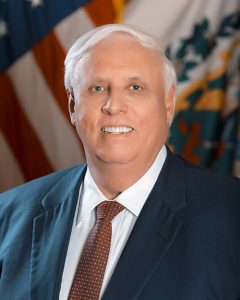This story was originally published by Mountain State Spotlight. Get stories like this delivered to your email inbox once a week; sign up for the free newsletter at mountainstatespotlight.org/newsletter
Earlier this year, West Virginia broadband officials had finally prepared a plan to bring high-speed internet to every home and business.
The state was on track to serve 110,220 locations with broadband, invest millions to improve cell service and train local broadband technicians, according to a draft final proposal obtained by Mountain State Spotlight.
If approved, the proposal would’ve unlocked $1.2 billion in funding from the federal Broadband Equity and Access Deployment program, a Biden-era program to get internet to every household.
For decades, West Virginians have dealt with poor and expensive internet service. About 1 in 6 households still don’t have internet.
Just weeks before the proposal was due to the federal government, everything came to a halt.
Trump administration officials were changing the rules and opening the door for satellite providers like Elon Musk’s Starlink. In late March, Gov. Patrick Morrisey announced it would be at least three more months before the state would submit its application.
West Virginia’s broadband officials put together a plan that was unthinkable to achieve just a few years ago, said Evan Feinman, former BEAD program director at the National Telecommunications and Information Administration.
“For some reason, they’re going to go do a bunch of extra work and spend a bunch of extra money and slow the program down to get worse connections to people that cost them more every month,” he said.
In a recent column, Morrisey defended the changes, praised the work of the Trump administration and insisted the state isn’t “dragging its feet.”
He argued the program should include satellite providers, particularly in more mountainous and remote areas of the state.
“This gives us a greater reach, faster timelines and a smarter investment of taxpayer dollars,” he wrote.
But in the state’s draft final proposal, broadband officials were doubtful about the speed and reliability offered by satellite internet.
“The state has a highly mountainous terrain (with 78.5% of the State covered in forest), and faces a wide range of weather events, such as snow and rain; all of which can significantly degrade speeds utilizing those services,” officials wrote.
The state also didn’t receive any proposals from satellite internet providers, which use orbiting satellites to supply homes with internet in remote locations.
Starlink, which uses low-orbit satellites, has become an alternative to traditional providers for West Virginians with poor service. But not without its own issues.
Elon Musk, Starlink’s owner, had a significant role in the Trump Administration, spending over $200 million to help him get elected. But in 2022, the company was denied nearly a billion dollars in federal subsidies after officials determined its internet speeds were lackluster and inconsistent.
Construction was set to begin later this year on the 108 broadband projects set to be funded by the BEAD money. Broadband officials wrote in the application that they were under budget, even after administrative costs.
Drew Galang, a spokesperson for the governor, said the state expects new guidance from federal officials.
“Our broadband office is working diligently to finalize a proposal that meets the criteria set by the Trump administration so that West Virginia receives this critical funding,” he said.
During a regulatory hearing this week, Kelly Workman, the state’s broadband director, said she anticipates funding to come in the fall and projects to start next year at the earliest.
Feinman, the former federal program director, said West Virginia was ahead of the curve thanks to the diligent work of the state’s broadband officials.
“West Virginia has gotten the short end of the stick over and over,” he said. “This is an opportunity for West Virginians to have access to the internet that is just as good as anybody in the whole country.”
Reach reporter Tre Spencer at tre@mountainstatespotlight.org















